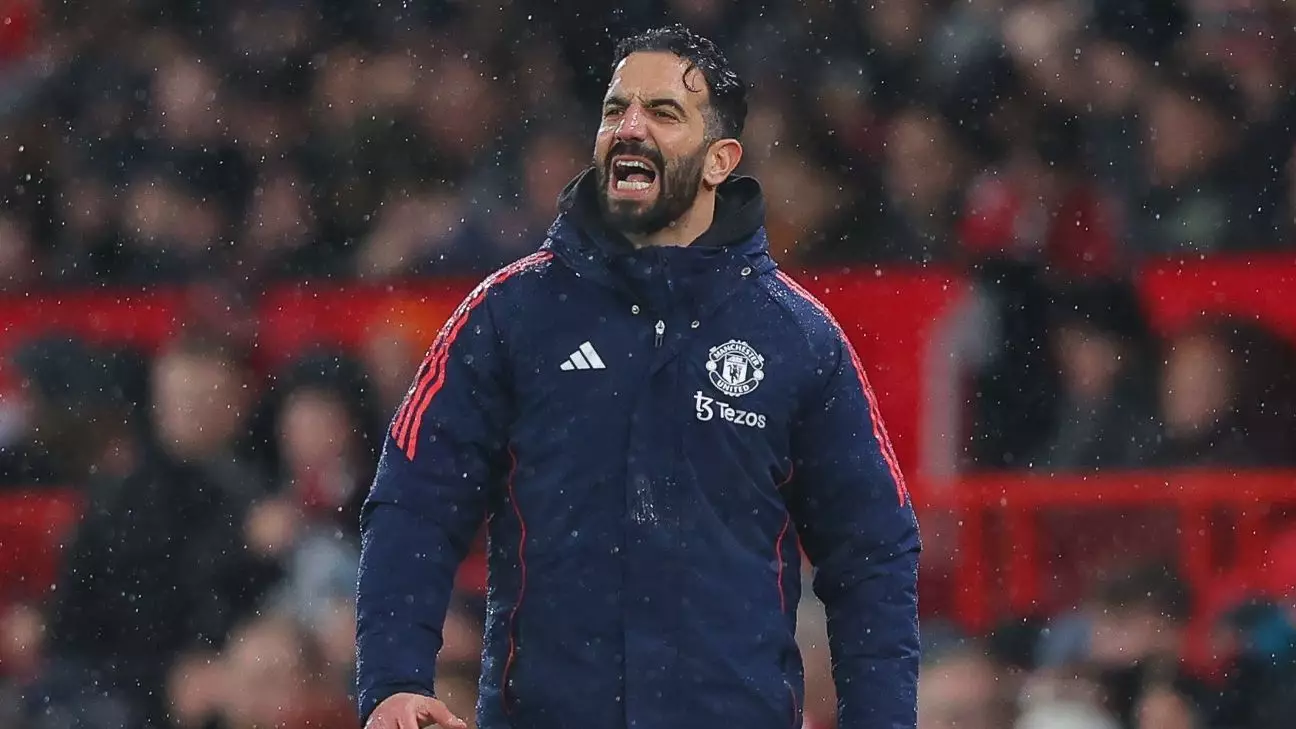In the world of football, the commentary of former players and pundits can significantly sway public opinion regarding current players. Recently, Ruben Amorim, the head coach of Sporting Lisbon, found himself in a position where he needed to defend his captain, Bruno Fernandes, against former Manchester United midfielder Roy Keane’s harsh criticism. Keane’s pointed remarks about Fernandes during a discussion on the Overlap podcast drew attention when he labeled the Portuguese international as lacking grit and referred to the broader Manchester United team as “imposters.”
Responding to these critiques in a press conference, Amorim emphasized the importance of his perspective as a coach. He argued that Keane’s opinions, while valid given his decorated career, do not hold the same weight as his own assessment of Fernandes’s contributions to the team. Keane stated, “Bruno’s a talented player, but talent isn’t enough,” and characterized him as someone who does not exhibit the toughness associated with elite players. Amorim, however, countered this by highlighting Fernandes’s significance to his squad, insisting that his captain often bears the mantle of responsibility, particularly during challenging matches.
Amorim noted that Fernandes’s sometimes demonstrative behavior on the pitch is a reflection of his desire to win, suggesting that his frustration stems from the pressures of a demanding environment rather than a lack of character. The coach acknowledged the challenges the team has faced in the last couple of seasons, implying that these struggles can lead to emotional reactions from players. Such intensity and passion, in Amorim’s view, do not detract from Fernandes’s overall value to the team. On the contrary, they showcase his commitment.
It’s also worth noting that Amorim’s defense extends beyond just Fernandes. The goalkeeper, André Onana, has come under fire following some high-profile errors in recent matches. Despite the criticism he has faced after games against Everton and Ipswich Town, Amorim remains supportive. He expressed confidence in Onana’s abilities, pointing out that, despite challenges, the goalkeeper has made crucial saves that have benefited the team. He recognized that blunders are part of a player’s journey, stating, “If you look at our team, you can find a lot of players with that issue.”
Ruben Amorim’s public defense of Bruno Fernandes and his measured support for Andre Onana reflects not just a commitment to his players as a coach, but also an understanding of the broader dynamics at play within elite sports. While pundit insights can stimulate discussions, they often lack the nuanced consideration that a coach, practically engaged with his players, can provide. Amorim’s stance highlights the importance of fostering a supportive environment, crucial for helping players navigate the pressure of high-stakes competition while maintaining the belief in their inherent talents.

